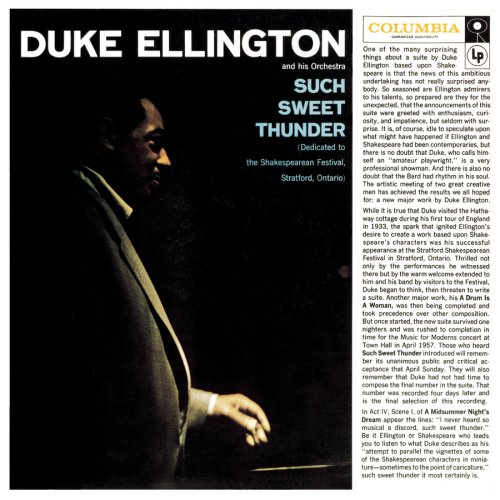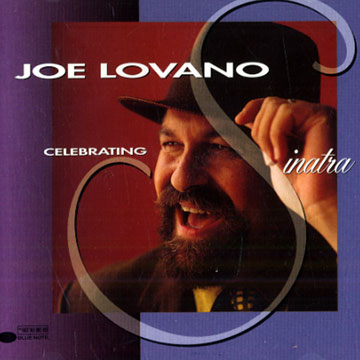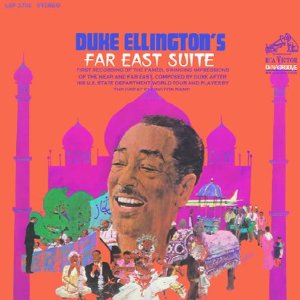Recent listening, current
Archived listening, 2013-2016
Sunday, July 28, 2013
118. Art Blakey and the Jazz Messengers / Soul Finger (1965)
In 1965, the Jazz Messengers were navigating strange seas. The decade was only half finished but had already seen players like Dolphy, Coltrane, and a host of others. On the other hand, it's like the climate inside the Messengers was oblivious to this. Their music continued ahead, business as usual, driven by Blakey's hailstorm of press rolls and weaponized hi-hat pulse. I feel inclined, or almost obligated, to say what been said a thousand times. I suppose when someone mentions the Messengers, that's the image I conjure: the world's best hard bop band, Blakey at the helm. Yet this lineup feels different than other incarnations of the Messengers, even if it's obvious that no two were the same. The soloists take some unexpected corners, and it's an aggressive front line from the word "go" with Freddie Hubbard and Lee Morgan blowing alongside Gary Bartz and, on one track, Lucky Thompson. They're explosive but the charm, for me, comes between John Hicks in the left channel and Victor Sproles in the right. I hear a lot going on there. Unforgettable is the debut of Gary Bartz on alto. This disc might not be a definitive Messengers date, but there are some critically overlooked moments packed between these grooves, and a little jazz history, as well.
Labels:
1965,
art blakey,
freddie hubbard,
gary bartz,
hard bop,
jazz,
jazz messengers,
john hicks,
lee morgan,
limelight,
lucky thompson,
review,
sextet,
soul finger,
verve,
victor sproles
Saturday, July 27, 2013
117. Ben Webster and Associates (1959)
Similar to the Rollins/Coltrane session Tenor Madness, much of Webster's Ben Webster and Associates feels like friends trying out ideas with relatively no pressure. In other words, a damned good jam session. Of course, with this lineup, the music has a completely different feel than Sonny Rollins and Coltrane. Webster and Co. start off with "In a Mellow Tone," and keep at it for over 20 minutes. It's so enjoyable, it's a shame the tune has to end. There's room for everyone: Webster, Budd Johnson, Hawk, Roy Eldridge, even Ray Brown gets two choruses. The excitement building for the final push to the end isn't to be missed. They next turn up the heat for "De-Dar," a bluesy tune with with a boisterous arrangement that swings hard. As far as the tenors go, I like listening to all the different styles on the same record -- Johnson's streamlined and laconic phrases in double time, Hawk's strident tone emerging like a dark horse, and Webster alternately growling or whispering but always playing straight. "Time After Time" strips Johnson, Hawkins, and Eldridge for a more intimate setting and allows further explorations in the diverse sound that Webster was famous for. So what are you waiting or? Get on the stick! This should be on every shelf.
Saturday, July 20, 2013
116. Duke Ellington / Such Sweet Thunder (1957)
In 1999, Such Sweet Thunder was released on CD, expanded and including outtakes. It's a fantastic stereo reconstruction of the originally intended program, complete with inter-track studio ambience akin to a concert hall, formerly available only in mono due to a flawed production. The album's original 12 selections are Duke's musical interpretations of various Shakespearean characters. It's another of his concept pieces, a tone parallel like Black, Brown, and Beige. The music is filled with quirky grinners, as in "Lady Mac," where Duke writes new personality into Lady Macbeth. It shows an indulgently swinging streak to the infamous noblewoman, hitherto unseen on stage. And who's to say that's incorrect? It's refreshing. Most notably, the Ellington-Strayhorn team uses soloists in the band to great effect in pieces like "Sonnet for Caesar," the first of four such sonnets on the album that emulate the 14 line poetic form. The soloists actually play the characters with their instruments, so I wonder, wryly, if the union rep had anything to say about that. "Caesar" features Sam Woodyard imparting an appropriately martial atmosphere while Jimmy Hamilton takes the lead (literally) to portray history's great general in a stately and beauteous, but ultimately tragic, melody. The arrangements for other songs continue the trend of band-as-cast in brilliant works like "Up and Down." Here, Puck (played by Clark Terry) quotes mischievously while working the play's couples into increasingly awkward situations. Just three examples, there are nine more to enjoy. It's ambitious, and the CD release is a treasure. It's sound is brilliantly spacious and clear, and we have all the session's complete takes in one place..
Tuesday, July 16, 2013
115. Joe Lovano / Celebrating Sinatra (1997)
Joe Lovano here performs his version of the Great American Songbook by interpreting one of his more powerful muses, Frank Sinatra. I read Lovano's single page in the accompanying booklet and I can't disagree with him. Sinatra was consistently great for the duration of his career, and exerted a powerful influence on succeeding generations of musicians. The effect continues and this 1997 album is a prime example. As Lovano and crew cut through classics like "I've Got the World on a String," "In Other Words," or "Someone to Watch Over Me," they meld modern sensibilities and at least five decades of stylistic development in jazz with Sinatra's timeless swing. It's a natural setting for Lovano, like balm for the soul. He grew up with Frankie playing all around him, and it immediately conjures memories of his home and family, notably his Aunt Rose Verzi. A Sinatra devotee who saw him in person hundreds of times, she sounds pretty cool! Lovano was certainly taken by his auntie. His ballad work bubbles with ideas and earnest sentiment. The arrangements and orchestration aren't just tasteful, they're clever, too, as in the aforementioned "String" where Lovano weaves in and out with the cello to make a play on the lyrics in the song. Or the wild and nasty group sections culminating at the end of "One for My Baby." During "South of the Border," Lovano lets George Mraz have the first chorus, giving a new context for Lovano's solo to emerge in, instead of jumping right off the melody. The result is really fresh. Every track is as good as the next, so hats off to Joe Lovano for indulging his passion and recording this set of Sinatra staples. As with other Lovano records, it stands up heartily to repeat listening.
Thursday, July 11, 2013
114. Angelo Badalamenti / Music from Twin Peaks (1990)
David Lynch's highly individualistic and genre defying films have a niche all their own. A great part of the magic in films like Blue Velvet, Mulholland Drive, or the series Twin Peaks, can be credited to the composer Angelo Badalamenti whom Lynch has hired time and time again. Lynch is an auteur and when he finds something that works, he sticks with it. Other directors have famously created an arc of conceptual continuity by hiring the same actors and composers for multiple films (reluctantly, Tim Burton springs to mind) but Lynch has avoided typecasting, banality, and the curse of repeating himself. Lynch manages to work new and frightening ideas into each film while creating a mood that is distinctly a product of his own making. This soundtrack by Badalamenti is a prime example of how the composer contributes to essential mood magic. The tracks run the gamut from low key, enigmatic synthesizer statements ("Theme from Twin Peaks," "Laura Palmer's Theme") to steamy blues (like the spidery threads of "Bookhouse Boys"), and moments of rare beauty ("Love Theme from Twin Peaks"). There are some vocal spots, too, by Julee Cruise singing lyrics by Lynch and dreamy music in the vein of "Sleepwalker." And that is the operative word, here: dreamy. Remember, it's a Lynchian dream where nothing is as it seems.
Tuesday, July 9, 2013
113. Duke Ellington / Far East Suite (1967)
Last month, I rolled down the windows of my car after working a 12-hour day, twisted the cap off an ice cold Virgil's Orange Cream soda, and enjoyed the drive
home while listening to this record. The Far East Suite is one of Duke's last recorded works, and one whose material might sport the familiar names and faces of orchestras past but its compositions have a unique flavor among others in the Duke canon. It's been on regular rotation at my house since that evening with the soda pop. Between the grooves are yards of punchy counterpoint between reeds and brass, and some of Johnny Hodges' sweetest work on wax ("Isfahan"). And of course we are treated to equally fine work by the likes of Cootie Williams, Cat Anderson, Russell Procope, Harry Carney, et al. The recording is memorable throughout thanks to Duke's direction of the sublimely cohesive band. It is nice to hear Duke melding his percussive piano blues with sophisticated orchestral textures and touches of middle eastern music or orientalism in tracks like "Mount Harissa," "Ad Lib on Nippon" or the opening "Tourist Point of View." I was swept up by the tidal wave of sound, which is what usually happens when I listen to Mr. Ellington.
Labels:
1967,
big band,
bluebird,
cootie williams,
duke ellington,
far east suite,
harry carney,
isfahan,
jazz,
johnny hodges,
orientalism,
paul gonsalves,
piano,
rca,
review,
russell procope
Saturday, July 6, 2013
112. Paul Desmond / Take Ten (1963)
If you can't get enough of "Take Five," then Take Ten is the album for you. It's one of several excellent slabs made during Desmond's many quartet sessions for RCA Victor. The band is Jim Hall on guitar, a moonlighting Connie Kay on drums and Gene Cherico on bass. Fellow Brubeckian Eugene Wright subs for Cherico on "Take Ten," adding an extra dimension of conceptual continuity to this 10/8 reworking of its famous counterpart. It starts with a familiar vamp that is reminiscent of a studio orchestra trying to avoid paying royalties for the genuine article. But then Desmond starts in on a deep and bluesy riff, finding new territory inside of an old melody. He blows these long and contemplative notes that explore the tonal color of the mode and remind me, in a very limited sense, of later work by Jackie McLean or John Gilmore. It's a treat, especially when he decides to hold on for just a bit longer and sustains the phrase with some vibrato. Proceedings quickly change the course toward Desmond's passion for bossa nova. In spite of an American burnout on the form, Desmond was one of its stalwart practitioners, and originals like "El Prince," "Embarcadero," or "Samba de Orfeu" are fine examples. Kay and Hall give the sessions that extra something it needs. Kay has a nice technique that intertwines his ever present cymbals with a driving attention to the skins. This band gives him elbow room that was impossible in the immaculately executed pieces by MJQ. A normally taciturn Hall takes some interesting breaks mixing chords with short flurries of single notes and a lot of fun riffing, and he is one of my favorite musicians. Together they make a melodically focused disc with good performances and an excited but cool, relaxed vibe that I wholeheartedly recommend. It ends as sweetly as it began, with an uptempo "Out of Nowhere" featuring George Duvivier on bass. The section at the end where Desmond has the floor to himself with punctuation marks by Kay is just magic.
Subscribe to:
Comments (Atom)






